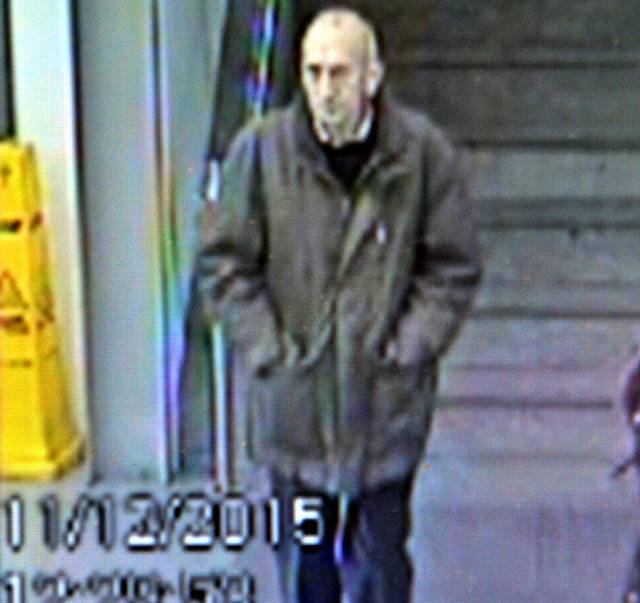Moors mystery set to unravel
Reporter: Ken Bennett
Date published: 27 January 2017
A 67-YEAR-OLD man travelled half way around the world to kill himself on Saddleworth Moors - but why he did it remains a mystery spanning two continents.
Detectives revealed only yesterday that they had finally identified the man as David Lytton on December 12, 2016, exactly a year to the day after he was found dead on a lonely mountain track.
Forensic examination established that the bachelor had died by taking a deadly dose of strychnine, a banned drug normally used to kill rodents.
But they still have no idea why the former croupier, who had lived in London and moved to Lahore in Pakistan in 2006, chose the spot.
An inquest into his death will open on March 14 and his funeral is expected to take place soon. He is survived by an elderly relative, who is not being named.
Mr Lytton's body was discovered at Chew track, near Chew Reservoir, Greenfield by a cyclist. He had no identification and was tagged "Neil Dovestones" by mortuary attendants in the absence of his real name.
A year-long international manhunt took place to discover who he was.
It was established that a plate fitted in his leg after he broke his left femur was inserted during an operation at one of 12 hospitals in Pakistan during a ten-year period.
This led Detective Sergeant John Coleman of Oldham CID, whose team have worked on the case, to believe that he could have flown into the UK days before he died.
A check of flight records revealed that a man matching Lytton's profile arrived at Heathrow Airport on December 10. He appeared to have no return travel ticket.
He travelled by train to Manchester and an image from the passport office was then checked along with pictures from Lahore Airport and CCTV from London Ealing and Piccadilly.
His identity was confirmed by a DNA comparison with a close family member in this country. Mr Lytton is not known to have any links with Saddleworth.
Det Sgt Coleman said: "Despite having a positive identity, we have still not established any link to why Mr Lytton chose to die on Saddleworth Moor.
"And despite the time taken on our exhaustive inquiries across the globe, there are still more questions than answers.
"The investigation, exhaustive search and subsequent identification is a truly remarkable story in itself. It has been an amazing journey to trace his family and relatives - the most illuminating case in my 20-year police career."
North Manchester Coroner Simon Nelson has ordered that no details are to be released about Mr Lytton's family, his life or why he moved to Pakistan. But Det Sgt Coleman said he appeared to compartmentalise his life, keeping his friends separate.
The last person he is believed to have spoken to is Melvin Robinson (69), landlord of The Clarence at Greenfield, who he asked for directions for "the way to the top of the mountains".
Mr Lytton's rain-soaked, fully clothed body was found in near freezing temperatures the following day, lying on his back on a grassy knoll near Robbs Rocks.
He had £130 in £10 notes, three rail tickets and a small plastic bottle marked thyroxine tablets which is believed to have contained the poison.
There was no mobile phone, watch, credit cards, passport or any sign of the spectacles he wore on his British passport photograph.
It is still not known how he travelled to Greenfield, from where he walked two miles to the desolate spot where he died.
Det Sgt Coleman said he would not have had time to take public transport and enquiries with taxi firms have not tracked down possible drivers.
He does not think Mr Lytton intended to create interest in his death but does believe he deliberately disposed of his credit card, mobile phone and passport.
Detectives have also been unable to confirm the origin of the strychnine and he added: "Strychnine is a very regulated drug in the UK and across Europe but it is widely used in Pakistan. But we are not able to identify where exactly the drug originated from."
The fascinating picture of Mr Lytton was built up after intensive inquiries by the National Crime Agency, requested by Greater Manchester Police, but his identity was confirmed in the UK.
The NCA visited Lahore and interviewed numerous witnesses in the area where Mr Lytton was living and put together a picture of his lifestyle in the country.
Most Viewed News Stories
- 1Milan Bar in Lees and The Bank at Delph close doors with immediate effect
- 2Punch perfect Kyle is Oldham's latest national boxing champ
- 3Group wanted following attempted robbery incident on a tram in Shaw
- 4Five arrested after two young victims are robbed
- 5Shaw prospect Rafferty aims to shine at massive 'Ring Warriors Unleashed' show





